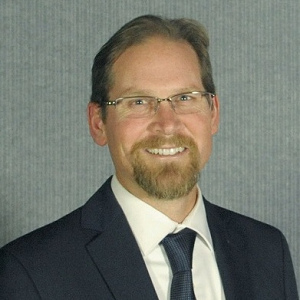PUBLICATIONS
Textbook (free, open educational resource CC BY-NC-SA 4.0)
Quantitative Sociology Essentials: An Introduction to Survey Data Analysis using IBM® SPSS®
. Internet
Archive (2025). https://archive.org/details/collom-qse_202506
Book
Ed Collom, Judith N. Lasker, and Corinne Kyriacou. Equal Time, Equal Value: Community Currencies and Time Banking in the US. Surrey, England:
Ashgate Publishing
(2012). Republished:
New York, NY: Routledge
(2016). Paperback: New York, NY: Routledge (2017)
Journal Articles
“Getting a Barista Job: Adjudicating the Impact of Human Capital, Social Capital, Age and Gender,”
Open Journal for Sociological Studies, 4, No. 3 (2020), pp. 139-152.
“Microfinance, Cooperatives, and Time Banks: Community-Provided Welfare.” In S. Harper and K. Hamblin, eds.,
International Handbook on Ageing and Public Policy
(2014), pp. 433-444. Cheltenham, UK: Edward Elgar Publishing.
“Key Indicators of Time Bank Participation: Using Transaction Data for Evaluation,”
International Journal of Community Currency Research, 16 (2012), pp. A18-29.
“Motivations and Differential Participation in a Community Currency System: The Dynamics within a Local Social Movement Organization,”
Sociological Forum, 26, No. 1 (2011), pp. 144-168.
Lasker, Judith, Ed Collom, Tara Bealer, Erin Niclaus, Jessica Young, Zane Kratzer, Lauren Baldasari, Ethan Kramer, Rachel Mandeville, Julia Schulman, Danielle Suchow, Abby Letcher, Anne Rogers, and Kathy Perlow. “Time Banking and Health: The Role of a Community Currency Organization in Enhancing Well-Being.”
Health Promotion Practice, 12, No. 1 (2011), pp. 102-115.
“Engagement of the Elderly in Time Banking: The Potential for Social Capital Generation in an Aging Society,”
Journal of Aging & Social Policy, 20, No. 4 (2008), pp. 414-436.
“The Motivations, Engagement, Satisfaction, Outcomes, and Demographics of Time Bank Participants: Survey Findings from a U.S. System,”
International Journal of Community Currency Research, 11 (2007), pp. 36-83.
“Community Currency in the United States: The Social Environments in which it Emerges and Survives,”
Environment and Planning A, 37, No. 9 (September 2005), pp. 1565-1587.
“The Ins and Outs of Home Schooling: The Determinants of Parental Motivations and Student Achievement,”
Education and Urban Society, 37, No. 3 (May 2005), pp. 307-335.
Collom, Ed and Douglas E. Mitchell, “Home Schooling as a Social Movement: Identifying the Determinants of Homeschoolers’ Perceptions,”
Sociological Spectrum, 25, No. 3 (May 2005), pp. 273-305.
“Two Classes and One Vision? Managers’ and Workers’ Attitudes toward Workplace Democracy,”
Work and Occupations, 30, No. 1 (February 2003), pp. 62-96.
“Clarifying the Cross-Class Support for Workplace Democracy,”
Berkeley Journal of Sociology, 45 (September 2001), pp. 71-103.
“Social Inequality and the Politics of Production: Identifying Potential Supporters of Economic Democracy,”
Sociological Forum, 16, No. 3 (September 2001), pp. 471-501.
“Worker Control: The Bases of Women’s Support,”
Economic and Industrial Democracy, 21, No. 2 (May 2000), pp. 211-235.
Ogawa, Rodney T. and Ed Collom, “Using Performance Indicators to Hold Schools Accountable: Implicit Assumptions and Inherent Tensions,”
Peabody Journal of Education, 75, No. 4 (2000), pp. 200-215.
